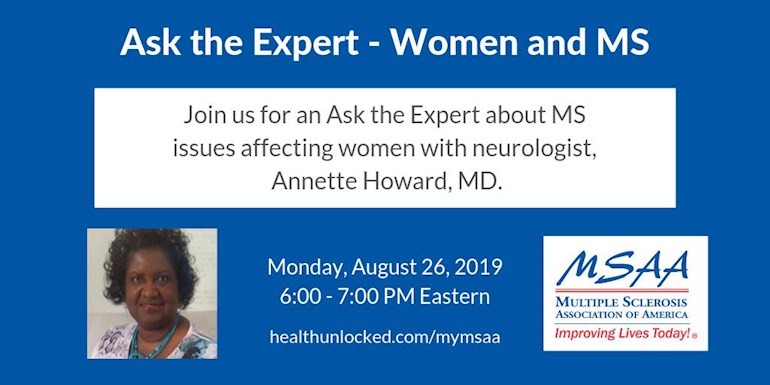Good evening and welcome, My MSAA Community, to our Ask the Expert with Dr. Annette Howard! We are grateful to have Dr. Howard joining us to answer YOUR questions.
Dr. Howard is medical director of the Multiple Sclerosis Institute of Texas in Houston and a private practice neurologist since 2001.
For the next hour, please feel free to ask Dr. Howard your questions concerning issues related to women and MS as a reply to this post. Don’t forget to keep refreshing the page to see the latest questions and responses.
Bring on your questions below!
